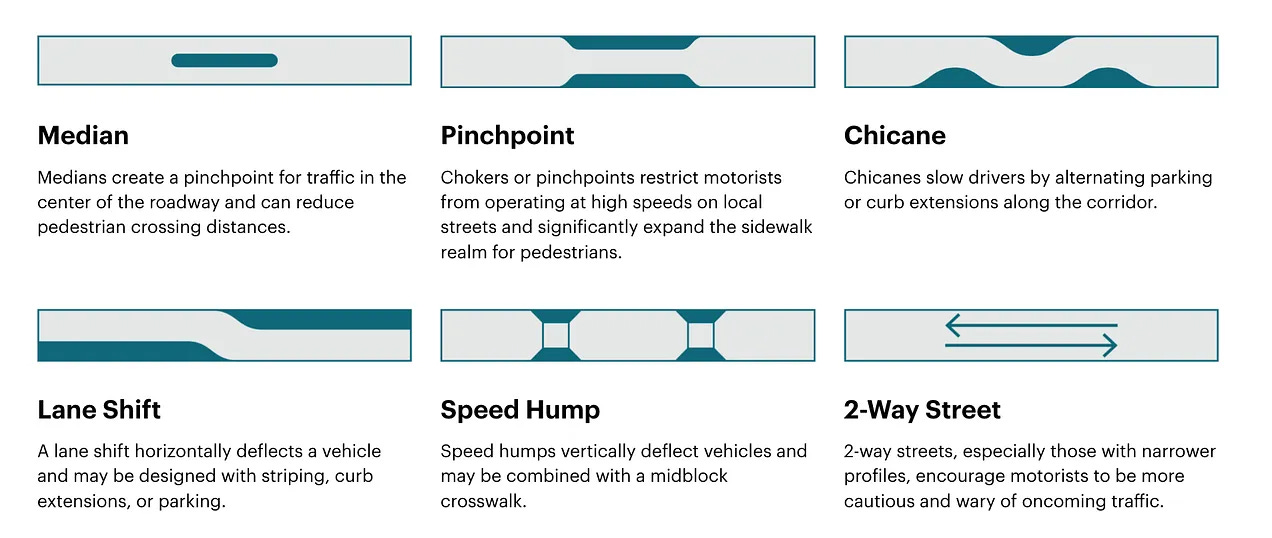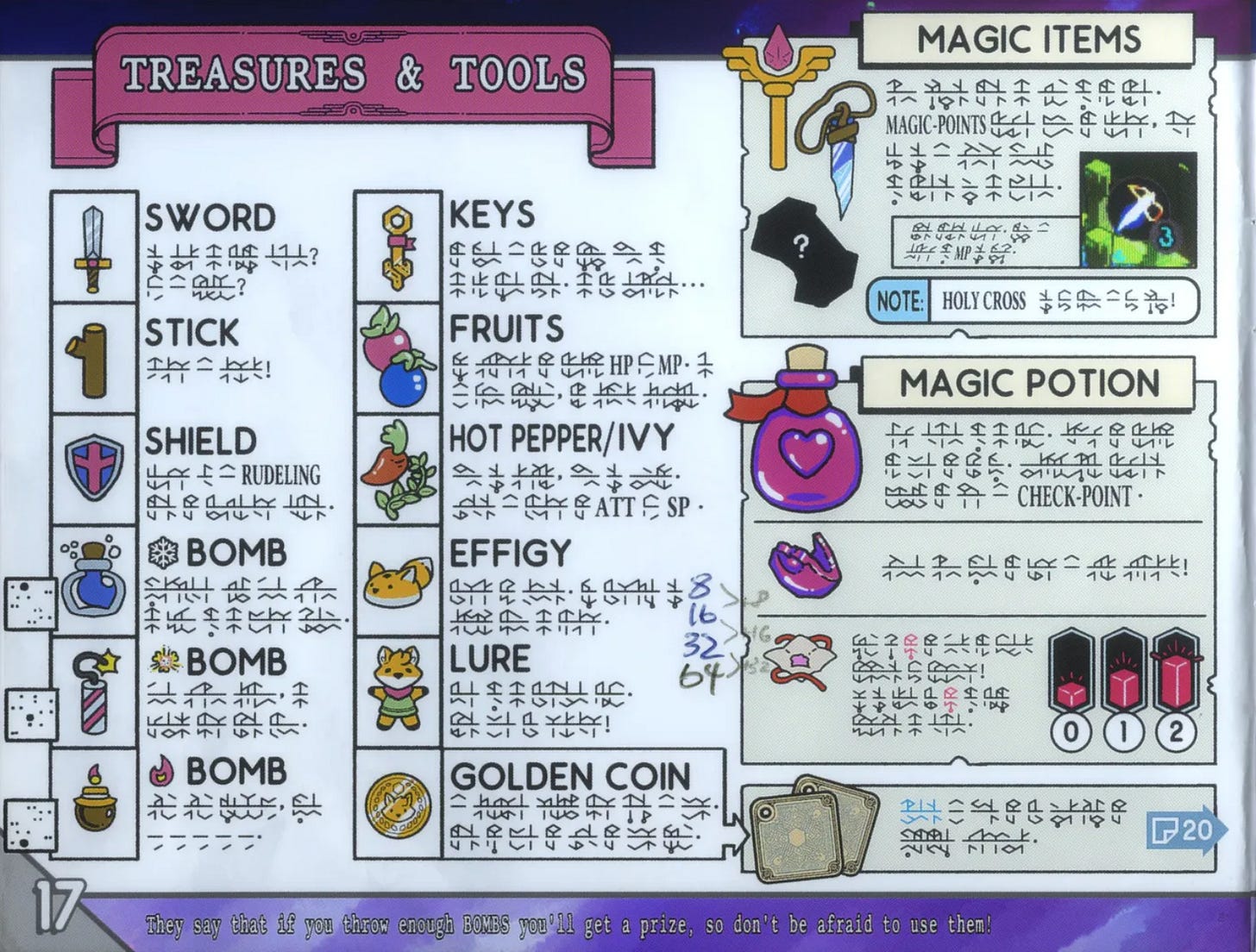Sunday Edition #14 - Protocol Design in Urbanism
Also: "Bullshit" jobs aren't "Bullshit", AI Boyfriends, and Sofia Kourtesis
Welcome to the Sunday Edition where I share interesting articles and links alongside what I’ve been up to!
Slowing Down Cars
I realised recently, one of the reasons I enjoy urban design so much is that it’s ultimately about protocol design. In cities, especially, while it makes a daily impact to people’s lives, it’s often invisible. Invisible in the sense that people aren’t actively thinking about how certain rules impact how they live. Usually, they simply *feel* the city without knowing why it makes them feel a certain way. A great example is a recent article from Hayden Clarkin on protocol adjustments in roads to slow down cards.
Now imagine if those lines disappeared overnight. No lane markings. No signs. No traffic signals. The entire system would grind to a halt—not because of a physical barrier, but because drivers would suddenly lose the cues they rely on to feel safe.
Too interesting. I would love to actually read a more explicit take on urban design and protocol design. If you have any sources on this, do please share.
More on AI Boyfriends
I think it might be easy to sneer or joke about people forming relationships to AI chatbot. But, I do think we should pay attention. Previously, I wondered whether simple access to a chatbot soundboard and therapy (despite the media’s focus on psychosis), might actually be broadly beneficial because of the ease of access. I pointed out to the lack of access to qualified therapists.
It’s not a replacement for guided and scientifically grounded counselling and therapy. But if one could say: hey, in lieu of getting every person a lifetime therapist, we give them LLM therapy with simplified guardrails, I think the overall benefit might improve society more than we anticipate. What does a world look like in 5 to 10 years time where everyone with a smartphone has had a simplified therapist in their pocket?
But, in circumstances where it’s not explicitly therapy and more akin to forming a relationship with a chatbot, Rina Nicolae presents a different mirror.
At the same time, human social systems have been eroding for decades, undermined by the cult of neoliberal individualism, overwork and economic precarity, car-centered urban design, among other structural factors, and more recently, digital platforms that capture attention.
The uncomfortable truth is that our social and economic order has already turned intimacy into a luxury not everyone has access to. Now corporations are selling it back to us on their terms.
Snowflakes From Space
As previously mentioned, my article on LLM-native media was co-composted with Octopusyarn (when you collaborate by sharing research and then writing your own version/interpretation of the research). They published theirs today. I enjoyed the more academic take.
The kernel itself retrieves the notion of platonic forms. An abstract idea that can only ever be approximated by each physical manifestation. It is by looking at many artefacts that we can intuit the kernel and understand the artistic vision of an AI-native artistic conversation, just like we can asymptotically approach the idea of a chair by sitting on many of them. The endless variation and co-creation retrieve something even older: oral culture. Before writing ossified stories into fixed forms, songs and stories would constantly evolve as they traveled the world. It’s fascinating to look at how fairy tales are different in different languages and cultures. The core themes often persisted, but most of the details changed, from names to metaphors.
This co-production mimics what AI-native media might look like: that multiple interpretations are the norm.
Co-composting, the process by which this piece was written, is a synecdoche of our vision for AI-native art. Simon and I had several conversations on the topic, collected notes and research in a shared document, and wrote two distinct pieces based on the same underlying material. The latent space is the intersection of the world models of the two authors and their creative dialogue. You can read two distinct artefacts, but you don’t get to see the kernel directly (the co-composting document).
Death of the Corporate Job?
Still Wandering wrote about the death of the corporate job: that much these jobs are Graeberian “bullshit jobs”. It’s quite cynical to me…
The strangest part: everyone knows. When you get people alone, after work, maybe after they've had time to decompress, they'll admit it. Their job is basically elaborate performance art. They're professional email forwards. They're human middleware between systems that could probably talk directly to each other.
While, yes, it might be that a lot of these corporate jobs aren’t necessary, but I have a slightly different take. It’s functioning as it should, because the “real” job is actually trust generation in a noisy market or information environment. It is sometimes the rational choice to work with a client that can afford to maintain excess and pay for that privilege because the cost of taking on a cheaper client with a leaner team carries more uncertainty and risk. Jobs don’t exist in a vacuum. They are a part of a larger, emergent role, part of which job is to signal capability. So, on the inside, these jobs might look unnecessary, but they actually do serve a purpose, just not from direct output of each job.
(Tangentially: In ant colonies, for example, 30-50% of ants can be seen as inactive or “lazy”, but they still form a part of the stigmergic information ecosystem inside it.)
What I’m Up To
Been quite a busy week doing all manner of writerly things. Revisions, attending feedback sessions, guild networking events, and attending the National Book Festival. So my week has been packed/busy.
✍️ Writing - Revisions
I’m continuing revisions for the 10 to 50 pages. Of the first batch of 8 agents, I still haven’t heard from any but 2 which issued non-personal rejections. So, after finishing this revision, hoping to get another batch of 10-ish agents in the pipeline.
📺 Watching
Didn’t get around to TV/film this week, but I have been enjoying follow the US Open.
🕹 Gaming - UFO 50
What an interesting game (recommended by a good friend). It’s 50 games in one, following a fictional game studio’s development history in the 80s. I’m particularly fascinated by the meta narrative and meta gameplay elements, witnessing each game’s progression in: improvement in coding and art style + improvement in “fictional” hardware.
In some sense, it reminds me a bit of Tunic, a Zelda-like action-adventure game that uses familiar elements of playing a game and puts it *into* the game world. In the past, games would be boxed with manuals or today, maybe, look at a walkthrough online if they get stuck. In Tunic, gameplay elements are revealed through a fictional language in a fictional game manual. So, you’re left to figure out the game through this 4th-wall-ish meta instruction set.
So, yeah, I enjoy it when a medium plays with its own awareness and meta tropes.
🎶 Listening - Sofia Kourtesis - Nitzan and Aminaa
What a stellar house track. This + a sunset + summer + a crowd + a light buzz sounds like heaven. Have been grooving to it the entire week!
Hope you get to enjoy a sunset! See you next week.
Simon




Thanks for the mention Simon!